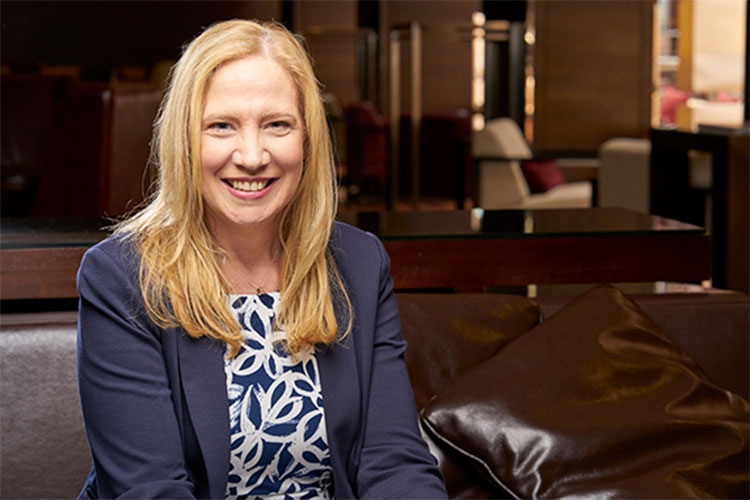4 Ways The Home Office Blurs The Line Between Parenting And Leading

Life as we know it has changed significantly in the last few months. We are no longer able to keep our worlds of work and family separate, having had the two smashed together in the most unceremonious way. We now lead organizations from our homes, manage company financials while marking maths homework, lead team meetings while our children sit beside us studying, and wondering if you can put your teenage son on a performance improvement plan.
While we typically have worked hard to keep these two worlds separate, there are more similarities to the two than we realise. And I’ve discovered in lockdown that we can take some of their lessons and apply them to how we lead our people.
- Geography
My teenage son seems to think geography is the study of the inner terrain of the refrigerator and while geography at work may not involve white goods, it does involve ensuring we provide a landscape that is supportive and clear for our people. Having clarity around the vision for the organisation helps your people understand the inner terrain of the work they do and how it links to the plan for the organisation. Organisations go to great lengths to create strategic plans each year. However, a 2016 study completed from Finland found that a mere 12 per cent of organisations were actually able to implement their strategy successfully, approximately 70 per cent of strategic initiatives failed and less than 20 per cent of employees were able to articulate what their organisational strategy actually was. As leaders, we may be good at developing a strategy but we still have work to do in helping our people understand its geography. - English
As kids grow into teenagers, their capability of the English language changes. They tend to overuse certain words, for example, direct evidence suggests that the word ‘mum’ was the most over used word in my household throughout 2019 (according to the survey of household residents at my address, 2019). Their language also changes into its most primal form consisting of mainly grunts, groans and a somewhat abbreviated version of its former self. As parents we can find this language confusing and frustrating to navigate and the same applies for those we lead. At work we take the opposite approach and use great, big, elongated, perplexing and incomprehensible words when we could just say “please use plain English”. Keeping what we say simple at home and in the office, gives everyone the opportunity of comprehension. - Mathematics
I’ve noticed that mathematics takes the shape of ratio’s and percentages with my kids. For example the ratio of junk food to vegetable consumption is at a disproportionate level as is gaming to exercise. Creating a health centred work culture is also important, with research showing a positive correlation between health focused workplaces and decreased stress, which is a negative influence on employee engagement. A Gallup survey found that disengaged employees had ‘37% higher absenteeism, 49% more accidents, and 60% more errors and defects’. And further research shows that stress created in the workplace can increase voluntary employee turnover by almost 50 per cent. You do the math! - Debate
Full credit goes to the teacher of debate at my kids’ school. I’m expecting they will get an A on their end of year report. We seem to debate everything – bed time, homework, world peace, nothing’s off limits. Encouraging those we lead to be comfortable debating and discussing issues without fear of judgement is a characteristic of psychological safety. In his book Leadership in the Age of Personalization: Why standardization fails in the age of ‘me’, Glenn Llopis cites his survey of more than 14,000 leaders and their employees at a broad range of companies across the US, highlighting that the number-one thing employees wanted in order to be their authentic self at work was ‘a safe environment where no-one is judged’. Psychologically safe teams require high trust and organisation with high trust have 50% higher productivity, 74% less stress and 76% more engagement. A great argument for building trust.
Like parenting, leadership is equal parts hard work, persistence and determination, and the rewards are momentous and incredibly satisfying. Through the blurred lines of these two worlds comes the opportunity for learning from both.
Have you read?
World’s Most Stressed-Out Cities For Employees.
World’s Best Destinations For Business Travelers.
World’s Most (And Least) Expensive Cities For Taxis.
Bring the best of the CEOWORLD magazine's global journalism to audiences in the United States and around the world. - Add CEOWORLD magazine to your Google News feed.
Follow CEOWORLD magazine headlines on: Google News, LinkedIn, Twitter, and Facebook.
Copyright 2025 The CEOWORLD magazine. All rights reserved. This material (and any extract from it) must not be copied, redistributed or placed on any website, without CEOWORLD magazine' prior written consent. For media queries, please contact: info@ceoworld.biz








